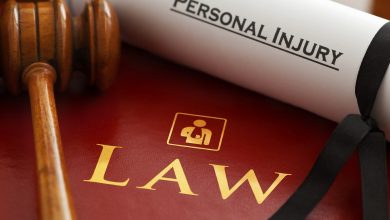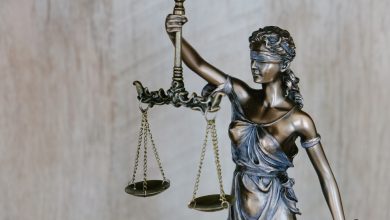Ineffective Assistance of Counsel

There are many defendants who lose a trial and believe it was a result of their attorney’s actions, whether this be from incompetence or actual malice. However, as the right to a fair trial is guaranteed by the Constitution, there are legal remedies for these cases. There will be some requirements to proving that the lawyer was actually ineffective, but it may be worth a shot if you feel you weren’t given a fair chance. There are also laws and regulations surrounding the exercising of this right, which must be considered when creating a case. We’ll discuss what rights you have throughout your entire case, what qualifies as ineffective assistance of counsel, the steps for addressing it, and what remedies can be made.
The Right to Effective Counsel
The Sixth Amendment is what gives the right to an effective and unprejudiced lawyer throughout the entire process, beginning with the arrest and through the first appeal after conviction. This is established in Brewer v. Williams, where they ruled that the defendant has the right to counsel “at or after the time that judicial proceedings have been initiated against him, whether by formal charge, preliminary hearing, indictment, information, or arraignment.” The Supreme Court has even recently established that this effective counsel applies to the process of plea bargaining as well, which is significant considering how many innocent defendants tend to be talked into plea bargains by ineffective counsel. While the Constitution obviously secures rights for all, this Sixth Amendment technically only applied to federal cases until 1963, when Gideon v. Wainwright determined that it also extends to state charges. Specifically, the Sixth Amendment provides that:
“In all criminal prosecutions, the accused shall enjoy the right to a speedy and public trial, by an impartial jury of the state and district wherein the crime shall have been committed, which district shall have been previously ascertained by law, and to be informed of the nature and cause of the accusation; to be confronted with the witnesses against him; to have compulsory process for obtaining witnesses in his favor, and to have the assistance of counsel for his defense.”
This also means that, even if the defendant cannot afford their own attorney, one must be appointed to them – although this is sometimes when defendants find issue with their counsel, as public defenders may have extreme case loads that would make any professional’s performance suffer. It’s expected of that counsel to advise the defendant of what rights they have in this case and what can be expected throughout the process, ensure that their client’s rights are not violated at any point through the process, and negotiate when necessary.
While this provides for the right to an attorney, the part guaranteeing effective counsel specifically is the result of several decisions from various court cases, but overall, the Supreme Court has held that right to an effective lawyer. This reasoning is described in the 1970 case of McMann v. Richardson, where the court ruled that, “[I]f the right to counsel guaranteed by the Constitution is to serve its purpose, defendants cannot be left to the mercies of incompetent counsel.” As the Sixth Amendment gives the right to a fair trial, having a lawyer who provides sufficient counsel is a necessary component.
The Supreme Court has even recently established that this effective counsel applies to the process of plea bargaining as well, which is significant considering how many innocent defendants tend to be talked into plea bargains by ineffective counsel. In the case of a plea bargain, the attorney should throughly explain what the defendant is up against, what evidence is against them, what pursuing a trial would look like, the full consequences of their plea bargain, and what their sentencing could be if they don’t take the deal.
Also important to note is that this right is only strictly applied in felony cases. In the cases of misdemeanors, defendants technically only have the right to an attorney when their charges may come with jail time. Additionally, it does not apply to civil cases, as they don’t have the right to a lawyer. In these cases, suing for legal malpractice is their best option.
Overall, the justice system recognizes that, in most cases, the defendant is facing an extreme loss of rights – their right to freedom in particular. As such, this amendment is a way to provide protection to the defendant to ensure that they are receiving advice and direction that is in their best interest. But what if that direction doesn’t seem to point them to the right path?

Proving Ineffective Assistance of Counsel
The first place most will turn to when judging the effectiveness of an attorney’s performance will be the 1984 court case Strickland v. Washington. In this case, defendant David Washington pleaded guilty to murder charges in a Florida state court case, which resulted in Washington being sentenced to death. Washington sought out assistance to reverse this decision, as his lawyer made no attempt to provide mitigating circumstances to reduce this sentence, such as obtaining character witnesses for Washington or requesting a psychiatric evaluation. This was of significance because Washington had no prior criminal record and felt that his crimes were committed as the result of the extreme stress he was under, as he was unable to provide for his family. Washington ended up bringing the case all the way up to the Supreme Court, where they determined that Washington’s case did not qualify as ineffective counsel. However, they did set several guidelines for deciding if a defendant has received sufficient counsel provided by the Sixth Amendment.
This established two requirements: that the attorney performed unreasonably and that the defendant’s judgement was affected by this improper counsel. In other words, it has to be proven that, as a direct result of the lawyer’s counsel, the defendant did not receive a fair trial. They used specific terms that require an “objective standard of reasonableness” for the attorney and a “reasonable probability” that the verdict would have been different had the counsel been effective. To break this down, the first requirement is unreasonable counsel. So what does that entail?
This doesn’t mean that the attorney had to do a perfect job in defending their client; in fact, most courts will trust in the counsel’s performance more often than not. However, it does mean that there must have been some major, unprofessional error that was made at some point throughout the case.
An attorney’s performance will be evaluated based on whether or not they:
- Properly investigated the case
- Presented supporting witnesses
- Displayed a prejudice against the defendant
- Interviewed witnesses
- Provided an objection to harmful or incorrect evidence and statements
- Sought testing – DNA, psychiatric, etc.
- Filed appeals in a timely manner
- Followed ethical requirements
- Used appropriate legal strategies
- Properly informed their defendant of their options
As far as the requirement that it would have reasonably changed the outcome of the case, they will determine if, had the proper actions been taken and sufficient counsel given, it would actually make a difference. In other words, as a direct result of the attorney’s incompetence, the defendant received an unjust sentence.

Pursuing an Appeal for Ineffective Assistance of Counsel
The first thing to point out here is that the burden is on the defendant to provide the evidence that their attorney provided ineffective counsel. Obviously, the two aspects discussed above will need to be properly displayed; the lawyer must have shown incompetence, and it must have affected the defendant’s case. As such, the first step will be detailing what specific actions the attorney took – or didn’t take – that are problematic. This may require the advice of another lawyer, as the court will likely determine whether the strategies and methods the attorney provided were ones that a reasonable attorney would also take. If an attorney can advise that most reasonable counsels would have taken a different approach, then this may be enough to make a case. The defendant should also review whether there were any witnesses, evidence, alibis, testing, or other methods that should have been pursued but weren’t. For example, if the defendant knows that there is a witness who can testify to their innocence and the lawyer didn’t even call them to the stand, this could be deemed ineffective counsel. Also, if there was any evidence presented that should have been found inadmissible and the attorney didn’t object to it, this is problematic as well. While there are many actions or lack thereof that can be questionable, it must be determined that a reasonable attorney would have behaved differently.
The other aspect that must be proven is that these actions had a direct effect on the outcome of the case. This may be a bit more tricky, as it’s hard to know exactly what decisions would have been made in a different scenario, but it can be more obvious in cases where there was essential evidence missing. Additionally, this may include cases where an attorney didn’t argue for a lesser sentence when evidence should have provided one.
It must be noted that it isn’t enough to just show that another lawyer would have used a different method. Instead, it must be argued that the methods were either incorrect, unethical, weren’t following proper procedure, or there was otherwise a major issue of performance.
If the defendant has exhausted their options for appeals, they may have to file a Habeas Corpus 2255 motion. This is only applicable for those who are currently serving their sentence, however. It will allow petitioners to submit new evidence for their case, something that typically isn’t allowed in an appeal. This will be filed with the district court in which the defendant’s case was originally sentenced to be presented to the judge who ruled on the case. They will then grant or deny the petition or bring the matter to a hearing. This process can take anywhere from several weeks to a year.
If there isn’t a case to be made as far as constitutional rights go, the defendant may find some success in pursuing a civil legal malpractice suit against their lawyer. Although, this is often difficult to prove as well. Similarly to the requirements for ineffective assistance of counsel, the plaintiff must prove the following four aspects:
- Duty: The attorney had a duty to provide a certain type of service or act in a certain way – in this case, providing effective counsel and an appropriate defense.
- Breach: The attorney breached this duty, whether through a mistake, negligence, or not following through with agreements.
- Causation: This breach led to negative consequences for the plaintiff.
- Damages: The plaintiff experienced harm from the breach of duty.
The lawyer’s duty is easily proven by explaining that they agreed to take on the plaintiff’s case. Typically in this case, the damage caused will be a negative outcome of the plaintiff’s original criminal case, and the other aspects are quite similar to those in an ineffective counsel case. For example, the breach will be similar to proving that the attorney acted inappropriately when managing their case, and they also must prove that it affected their case. If the plaintiff wins their case against the attorney, they likely will receive compensation for their damages.

Remedies for Ineffective Assistance of Counsel
The remedy will depend on what part of the process the case is at when the counsel is found to be ineffective. If this happens while the case is still pending, the defendant will be able to obtain new counsel, and they may be able to request a new trial. This will allow the defendant to begin again with counsel that will competently guide them throughout the process.
If the counsel is found to be ineffective during the sentencing process, the previous sentence will be thrown out, and the judge will provide a new sentence based on the new information.
After a guilty verdict has been given to the defendant, the court will likely reverse the verdict, and a new trial will be ordered. Again, this provides the defendant with the chance to obtain efficient counsel and have their case argued properly.
Examples of Ineffective Assistance of Counsel Cases
In order to provide examples on what types of errors result in a successful appeal for ineffective assistance of counsel, in the following cases, the defendant submitted a petition to determine that their attorney provided ineffective assistance of counsel and succeeded:
- Rayborn v. United States (2012): It was found that the defendant’s lawyer didn’t properly prepare them for their testimony or provide sufficient advice.
- Brown v. United States (1999): The jury was given incorrect information on the definition of reasonable doubt, and the counsel failed to correct it.
- Ward v. United States (1993): In this case, the defendant’s counsel allowed inadmissible character evidence, acted inappropriately, and made incoherent and illogical statements.
- Hughes v. United States (2001): A juror on this case stated that they would not be able to remain impartial and provide a fair decision, and the counsel did not remove them.
- United States v. Liv (2013): This case had a possible statute of limitations defense, which the attorney failed to use.
- Lopez v. United States (2013): The defendant’s lawyer provided ineffective assistance of counsel by not allowing the defendant to testify.
- United States v. Swanson (1991): This counsel informed the jury that there was no reasonable doubt for the facts presented.
- Smith v. United States (1999): This defendant was brought to their trial in an orange jumpsuit, which could sway the jury’s opinion, and their lawyer did not oppose this.
- Gonzalez-Soberal v. United States (2001): This case had a single adverse witness, and the counsel had documentary evidence to impeach the witness and didn’t use it.

A Fair Trial
As we all have the right to a fair criminal trial, it’s necessary that all defendants receive the most competent and effective counsel possible in order to give them the best chance of maintaining their freedom and proving their innocence. While it’s difficult to prove, ineffective assistance of counsel is enough to overturn a verdict and provide a defendant with a new, hopefully more fair trial. However, this does require that the defendant display the incorrect methods used by the attorney, as well as how they directly impacted the result of their case. It also does not include just general mistakes from an attorney, but rather gross misrepresentation that no other legal counsel would deem acceptable or effective. If you believe that you received ineffective assistance of counsel, you may be able to file an appeal and pursue justice. Discuss with a lawyer what your options are and what steps you need to take in your state.



